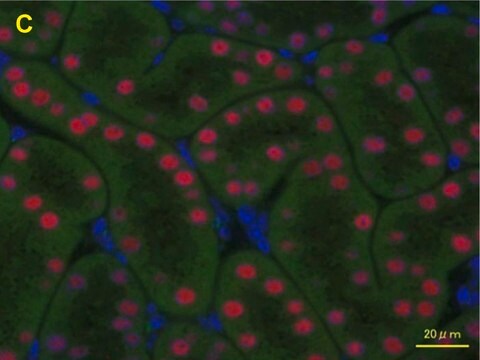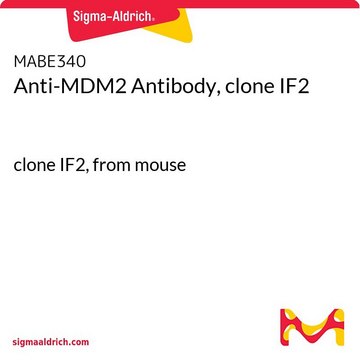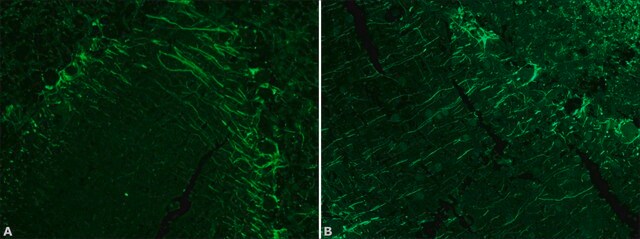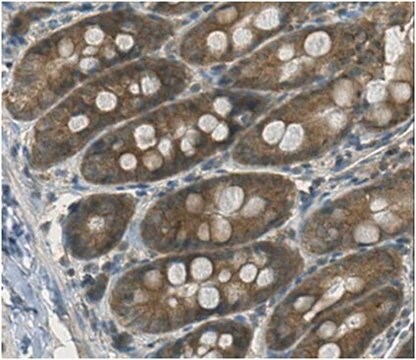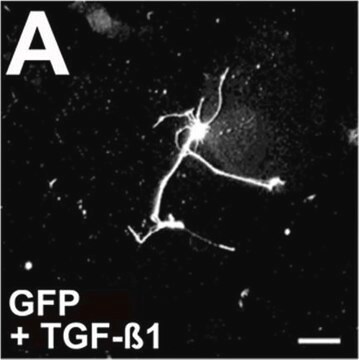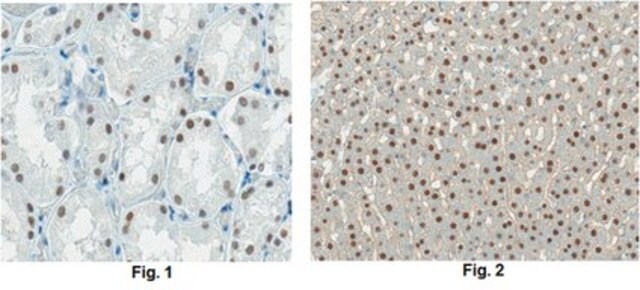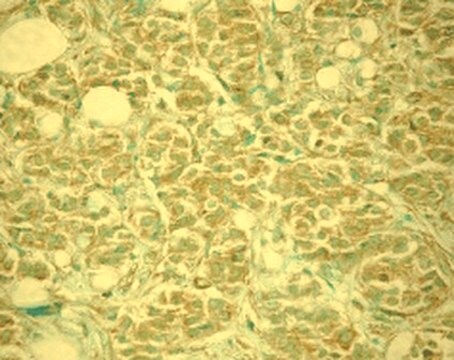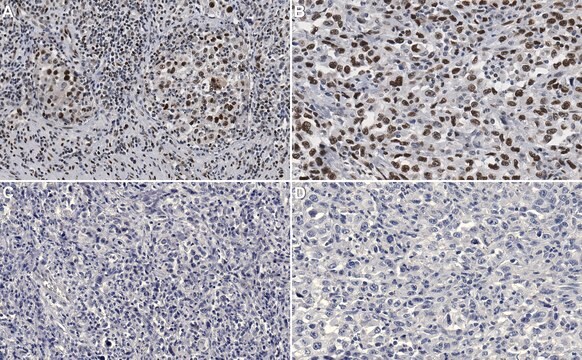MAB3776
Anti-MDM2 Antibody, clone SMP14
clone SMP14, Chemicon®, from mouse
Synonym(s):
Murine Double Minute 2
About This Item
Recommended Products
biological source
mouse
Quality Level
antibody form
purified immunoglobulin
antibody product type
primary antibodies
clone
SMP14, monoclonal
species reactivity
rat, human, mouse
manufacturer/tradename
Chemicon®
technique(s)
immunohistochemistry (formalin-fixed, paraffin-embedded sections): suitable
immunoprecipitation (IP): suitable
isotype
IgG1
NCBI accession no.
UniProt accession no.
shipped in
wet ice
target post-translational modification
unmodified
Gene Information
human ... MDM2(4193)
mouse ... Mdm2(17246)
rat ... Mdm2(314856)
General description
Specificity
Immunogen
Application
Ubiquitin & Ubiquitin Metabolism
RNA Binding Protein (RBP)
Immunohistochemistry (Frozen and Paraffin-embedded sections)
Immunoprecipitation
ELISA
Optimal working dilutions must be determined by end user.
Physical form
Analysis Note
POSITIVE CONTROL: Breast carcinoma
Legal Information
Not finding the right product?
Try our Product Selector Tool.
recommended
Storage Class Code
10 - Combustible liquids
WGK
WGK 2
Flash Point(F)
Not applicable
Flash Point(C)
Not applicable
Regulatory Listings
Regulatory Listings are mainly provided for chemical products. Only limited information can be provided here for non-chemical products. No entry means none of the components are listed. It is the user’s obligation to ensure the safe and legal use of the product.
JAN Code
MAB3776:
Certificates of Analysis (COA)
Search for Certificates of Analysis (COA) by entering the products Lot/Batch Number. Lot and Batch Numbers can be found on a product’s label following the words ‘Lot’ or ‘Batch’.
Already Own This Product?
Find documentation for the products that you have recently purchased in the Document Library.
Our team of scientists has experience in all areas of research including Life Science, Material Science, Chemical Synthesis, Chromatography, Analytical and many others.
Contact Technical Service